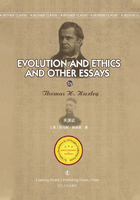
5.
The process of colonisation presents analogies to the formation of a garden which are highly instructive.Suppose a shipload of English colonists sent to form a settlement, in such a country as Tasmania was in the middle of the last century. On landing, they find themselves in the midst of a state of nature, widely different from that left behind them in everything but the most general physical conditions. The common plants, the common birds and quadrupeds, are as totally distinct as the men from anything to be seen on the side of the globe from which they come. The colonists proceed to put an end to this state of things over as large an area as they desire to occupy. They clear away the native vegetation, extirpate or drive out the animal population, so far as may be necessary,and take measures to defend themselves from the re-immigration of either. In their place, they introduce English grain and fruit trees; English dogs, sheep,cattle, horses; and English men; in fact, they set up a new Flora and Fauna and a new variety of mankind,within the old state of nature. Their farms and pastures represent a garden on a great scale, and themselves the gardeners who have to keep it up, in watchful antagonism to the old regime. Considered as a whole,the colony is a composite unit introduced into the old state of nature; and, thenceforward, a competitor in the struggle for existence, to conquer or be vanquished.
Under the conditions supposed, there is no doubt of the result, if the work of the colonists be carried out energetically and with intelligent combination of all their forces. On the other hand, if they are slothful,stupid, and careless; or if they waste their energies in contests with one another, the chances are that the old state of nature will have the best of it. The native savage will destroy the immigrant civilized man; of the English animals and plants some will be extirpated by their indigenous rivals, others will pass into the feral state and themselves become components of the state of nature. In a few decades, all other traces of the settlement will have vanished.